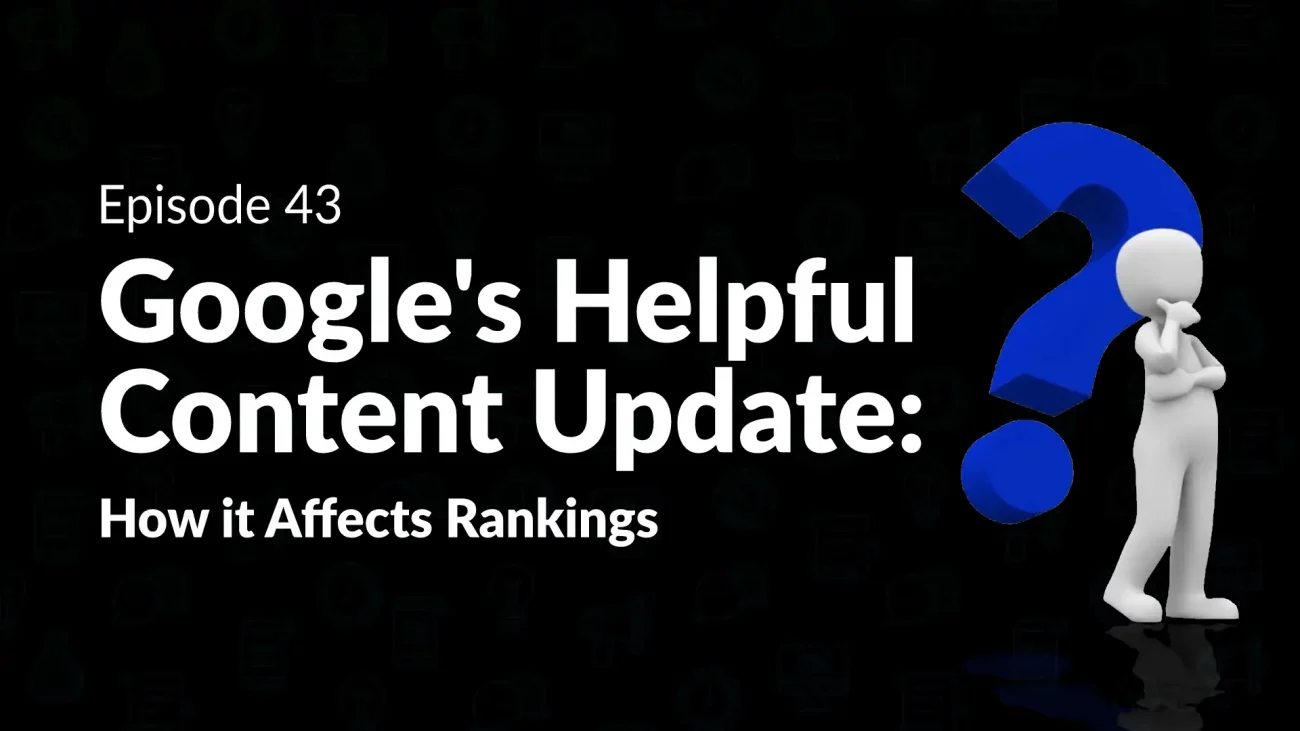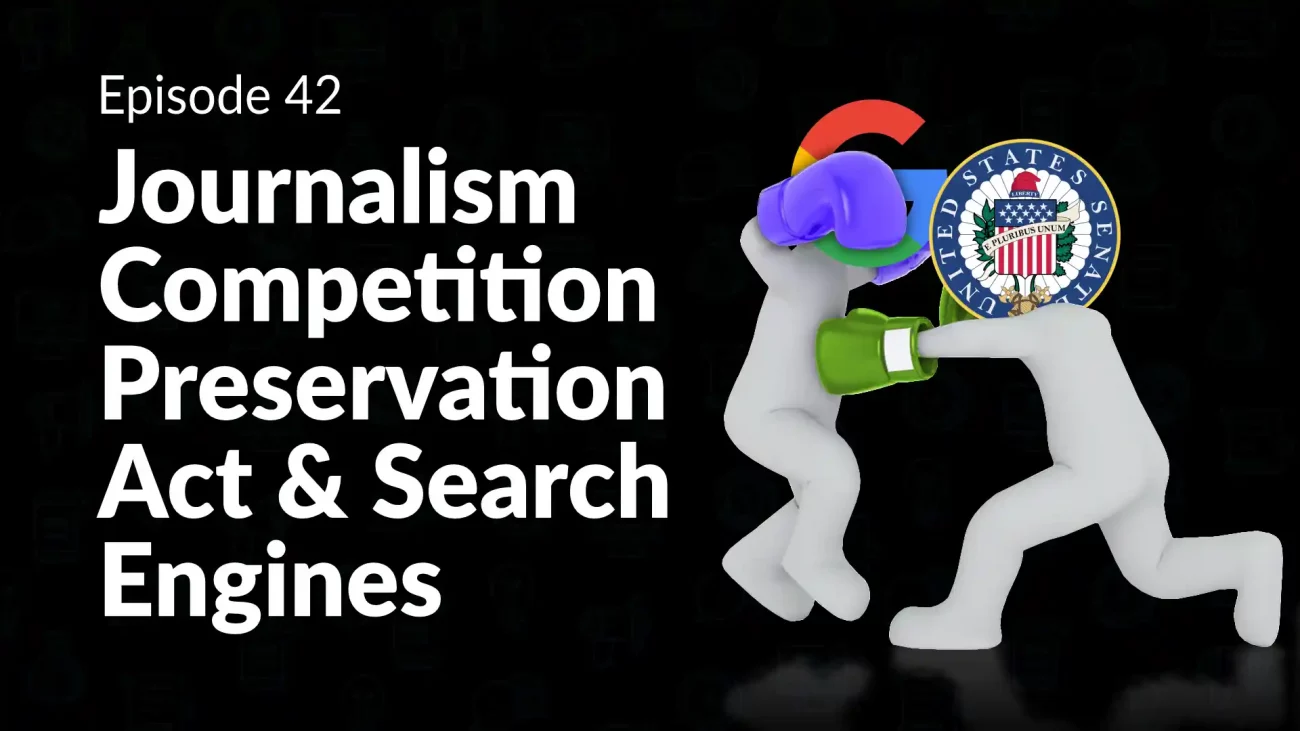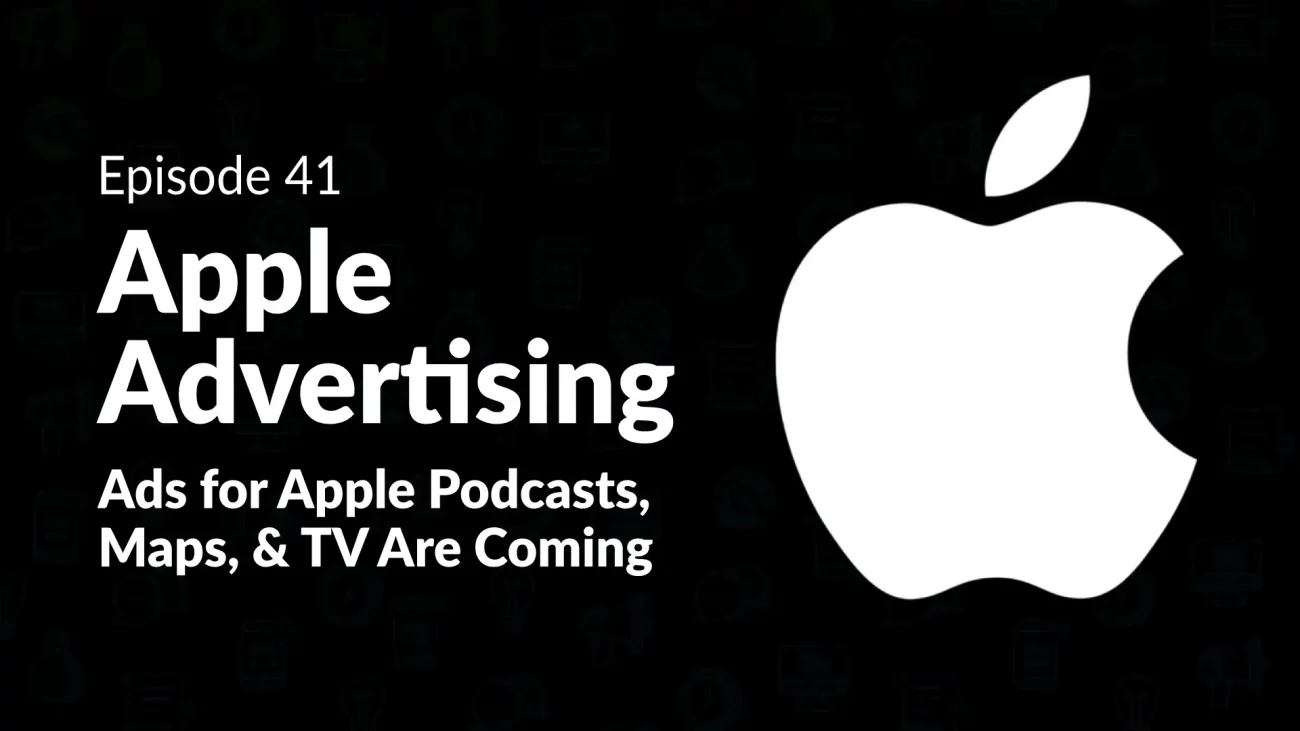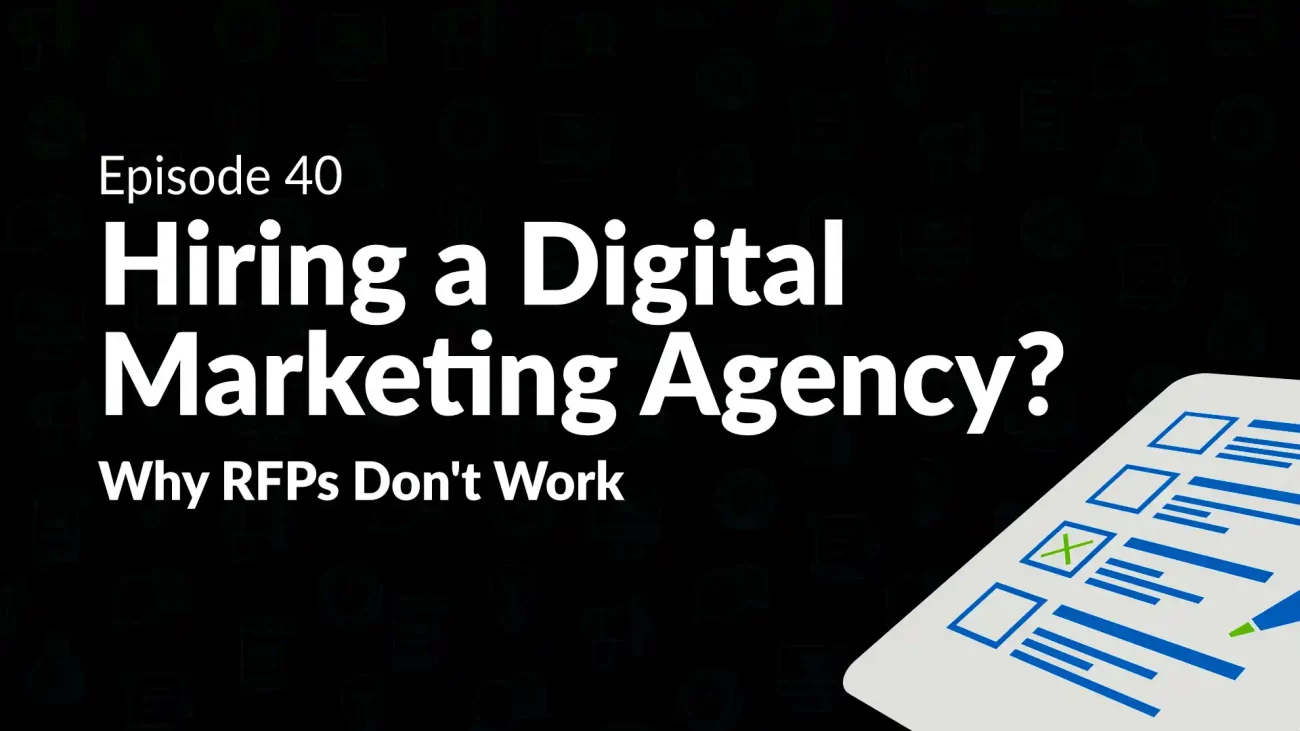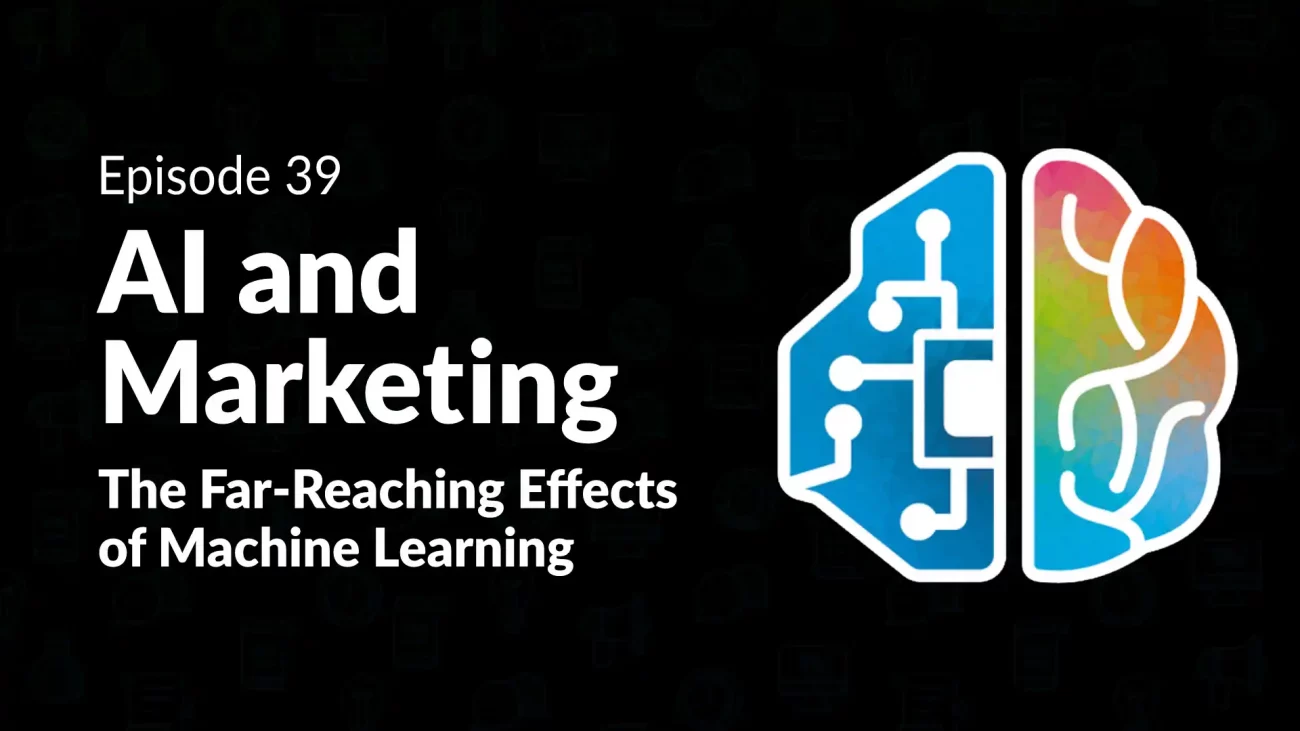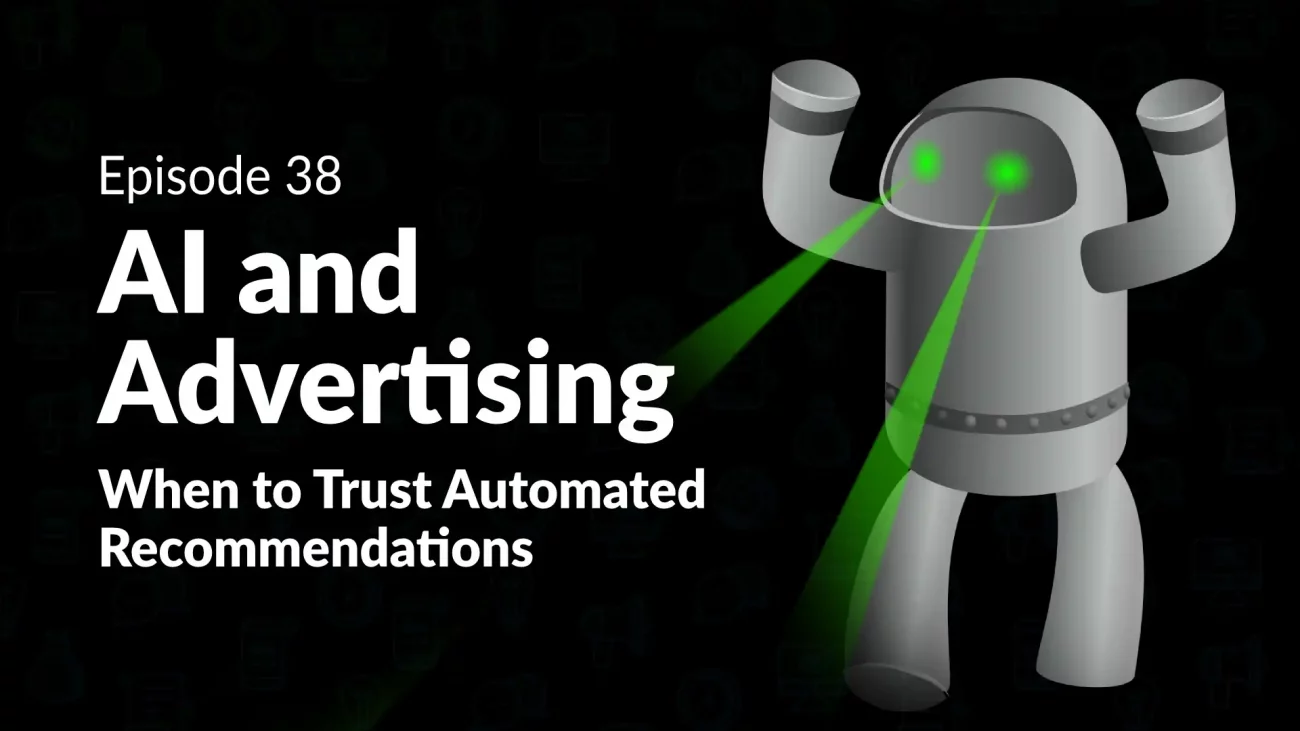Episode 29: Competitor Branded Keywords: Does Bidding on Competitor Brand Keywords Work?
Bidding on competitor brand keywords sounds like a great way to steal market share. On the surface it’s a no-brainer, but if you dig deeper, you’ll find things aren’t so simple. The intention of a search query has a big impact on which result will be relevant to a searcher. Are they simply trying to log into a bank account and using voice search to pull up their bank’s website on Google, or are they researching which bank to open an account with? Another potential of sponsoring your competition’s brand is that they might retaliate and begin targeting your brand. In additional to all of this, Google Ads has a metric called quality score that directly affects your cost per click. If you target less relevant keywords, the costs for your campaign will likely increase as a result of a lower quality score.
In this week’s Digital Marketing Monday, Hans and Devin debate when, if ever, it is appropriate to target your competitor’s brand keywords in your paid marketing campaigns. The results might surprise you and change how you plan keywords on your next paid campaign.
Transcription:
Devin:
You’re listening to Digital Marketing Mondays. Each week, we bring you new and exciting content from around the marketing industry and help give you, the marketer, insights into what’s happening. We’ll offer our advice and share some takeaways to help you develop better strategies for your marketing. Ideally, this will also help you improve your ROI as well. So with that, let’s tune into this week’s episode.
Devin:
All right, Hans. So I hear the topic of the day is talking about, should you be bidding on competitor keywords in search, specifically in Google Ads or in Microsoft Ads? And I believe you and I actually have a difference of opinion on that. So, I’m here to take off the boxing gloves. We’re going to duke it out right on this podcast and hopefully come to a resolution once and for all and answer that question, should you sponsor your competitor’s keywords in Google Ads or Microsoft Ads? So-
Hans:
Okay. I accept your challenge, Devin. All right?
Devin:
All right, let’s go.
Hans:
So let’s, first of all, set the table a little bit. Explain what we’re talking about in case people don’t know. So, the idea is your competitor is XYZ company. They give you a hard time when you run up against them a lot in the field with prospects. A lot of times what happens is it’s actually often comes from C-level executives who kind of have a grudge against their competition. And they think they invented this technique. They’re saying, “Hey, why don’t we sponsor the keyword ‘XYZ company?’ And then when somebody’s searching for them, our ad will show up ahead of their organic listing and they’ll click our ad instead. And they’ll come to our website and they’ll buy from us instead of buying from our competitor.” Again, it’s kind of funny, because everybody thinks they’ve invented the wheel when they haven’t. This has been going on since the beginning of time. And we should note that generally speaking, you can sponsor your competitor’s trademark, okay? But what you generally can’t do is put your competitor’s trademark in the copy of your ad. That’s my understanding. Do you agree with that Devin?
Devin:
Yep. Yep. I agree with that.
Hans:
Okay. So in other words, you can’t say “don’t buy it from XYZ company, buy us instead,” but you can say “we’ve got a great product for whatever it is that XYZ company does and you should shop us first or shop us last” or whatever, things like that. And if you do put their trademark in your ad copy, they will probably complain about it. They’ll probably see your ad. They’ll complain about it to Google and Google shut your ad off, and then you got to take their trademark out, but you can sponsor that keyword.
Hans:
So, my view is that it’s probably not a great idea to do. And I’ll give you a couple of reasons why I think it doesn’t really make sense. Number one, and first and foremost, I think that if you type in “XYZ company” into your computer, you’re either an XYZ company customer already, and maybe they’re a SAS company or a bank or I don’t know what, and you’re in there to log into your account or whatever. So, that would be kind of a wasted move, but long and short of it is you are looking for XYZ company. You’re not looking maybe for a type of widget or something, because then you type in that widget if you’re out shopping for finding out who sells this type of widget. But if you’re typing in “XYZ company,” you actually want to go to the website of XYZ company. So, we’re introducing some level of noise in there that is not going to be particularly effective. That’s one of my main arguments. So, why don’t you take it from there? Now, do you agree with this and if so, support your case please.
Devin:
See, and I generally disagree with that premise because I think there’s certainly a reasonably high level of wasted spend in the regard of sponsoring your competitor’s name as a search term.
Hans:
Okay.
Devin:
One thing that has been extremely valuable or one of the things that we can’t gather from our own data is what the intent of that person actually is, right? So, if somebody’s searching for XYZ company, we don’t know if they are a customer in fact, or if there’s somebody that is familiar with that brand or looking to purchase their product or service, which is why it’s so extremely valuable to actually run that type of ad or run an ad against that search term, because if it is actually somebody who’s currently with intent and ready to go buy that product or service, then it’s a great opportunity to snatch them away at the last minute, right?
Devin:
So, I would really consider that. The strategic approach for it is that it can sway people depending on of course the quality of the ad, the quality of not just the competitor’s business, but your business, right? And does it align with that expectation? So ultimately, we actually have several clients that are currently implementing this strategy to some extent in Google and in Microsoft right now. And it’s a great opportunity to be able to get people coming towards the direction of our clients. And to that respect, that I know that they’ve won business from using this method too. While it is a very costly endeavor, I think it does carry a lot of value for the people that you do get in front of that are actively researching and looking for that type of intent. Or that have intent to buy a product or service. You’re absolutely stealing away some of that market share, which is an incredible thing to be able to do.
Hans:
Okay. You sound like you’re kind of in favor of this approach then, am I right?
Devin:
I am. Yeah. Because I think it can work. Now, I think that the major downside that we see happen here, well, a couple downsides. One, the quality of the ads and the keywords, because of course, both of these ad platforms, Google and Microsoft have quality scores, which is the perception of the landing page in alignment to the ad, in alignment to the keyword, and how well that all lines up. If you’re sponsoring your own brand terms, you’re going to get a perfect quality score because obviously your brand name is everywhere. It’s in your URL, et cetera, et cetera. When you’re doing that against competitors, you’re often with a very, very low score because you can’t reference them by name in the ad. You’re not them, so you’re not going to carry the same amount of clout. You can reference them on a landing page, but even then the perceived quality of that is troublesome.
Devin:
So, that’s why you’re often at low scores. And that leads to the second part, which is often high, high cost. It’s much more expensive to play that game, running competitive search terms. It’s far more expensive to bid for that term to be higher up than your competitor organically. So, that’s the downfall that I see. But I think the upside is, and we’ve seen this firsthand with some of our clients, there’s a potential for an incredibly high ROI with this type of campaign, because if you can successfully even steal away just a handful of people that were looking at your competitor and are now going with you for your product or service, it can absolutely steal away some of that market share and produce a positive ROI. So in that respect, I’m all in favor of it. Despite the cost, I think that makes strategic sense.
Hans:
All right. I hear what you’re saying. I hear what you’re saying. I have an issue though with it. It depends. I mean, if, like I said, if you’re buying a widget, that’s one thing. If you have an existing relationship, let’s say it’s a bank or credit union, let’s say it’s a college or university, let’s say it’s a SAS product like online storage or… heaven knows in security software or whatever it is, right? And the way you get access to your account is you go to their homepage and you click the client login button or whatever it says. And you click on that and then you log in and give your credentials. But we know from looking at Google analytics data from lots and lots of different clients that a lot of people who want to go to XYZ company to just log into their account, they go type “XYZ company” into Google and then they click on the first thing that comes up, because usually that’s XYZ company and they go in.
Hans:
For some reason, people do that. I don’t know why they do that. It’s an extra step. But for some reason, people do that. They just type it into Google. They click on the Google listing and then they arrive on the homepage. So, when you put in that ad, I postulate that a lot of those clicks are going to be people who are going to bounce right off that page. Because they’ll go, “Wait a minute, how do I end up here? That’s not where I wanted to end up.” And even though that click was expensive, they already have an existing relationship with that company. And so they’re just going to bounce off of there, which is further going to depress your quality score, right? Because the landing page experience is going to be really awful. And so you’re going to be wasting a lot of money.
Hans:
So, I think if you’re selling widgets one time to a customer, that’s one thing. But if you’ve got relationships with existing customers who come to your site to log in, I think it is really questionable whether you should do that or not. What do you think about that?
Devin:
Yeah. This is probably where we’re coming closer to a middle ground then, because I would generally agree as that being a concern. But that said, we don’t necessarily have access to our competitor’s data. We’re not able to use that as audiences to exclude from ads so we can be more efficient that way. But I still have to hang my hat on the fact that even if there’s some small number of opportunities that you steal away from the competitors that have intent, it could still absolutely be ROI-positive campaigns.
Devin:
But again, I think I also would not recommend it for everybody either. So, maybe that’s our common ground then. It is I guess then the recommendation comes to make sure you have your ducks in a row. You have all of your other standard Google Ads and Microsoft Ads campaigns running for your highly targeted keywords. You have targeted display advertising, you have remarketing advertising that’s running. Make sure you have a well-rounded strategy. And if you have additional budget and you’re looking to take some market share, then perhaps that’s a good strategy to try at least to some extent. But that can also lead into, I think what will be next week’s conversation as well, around running brand term campaigns and what’s the effectiveness. What’s the need there because one other downfall-
Hans:
My own brand you mean? On your own-
Devin:
… yeah. Of your own brand. Yep.
Hans:
Right.
Devin:
Because one downfall we run into, if we have competitors that are in a highly competitive, they’re in a highly competitive market and they’re savvy, their marketing team is halfway savvy, they’re going to figure out that your company is running ads against their specific brand name terms. And they are probably going to turn around and do the same thing. So warrants and necessitates, making sure you fend them off while also trying to steal some of their market share. So-
Hans:
And at that point, the one who wins is Google, right? The house wins on that. Because you’re sitting there, competing with them for their brands, so I guess-
Devin:
Doesn’t the house always win though?
Hans:
… yeah. Kind of they do, don’t they?
Devin:
Yeah.
Hans:
So, I guess, the point is look at who the type of business you’re looking to sponsor the keyword of. And if it’s a place where client or customers log in on the homepage, then I’d say proceed with a lot of caution. But you’re saying that if that’s not the case, then it can often be a successful strategy. As long as you’ve got all your bases covered and you’re doing a good job. I mean, it goes without saying that if you don’t do good job writing ad copy, and all that kind of stuff, you probably shouldn’t be in the game anyway.
Devin:
Yeah. I think as long as you have a good war chest, you’re very clear on what you’re doing, you run it as a targeted test to see initially how it goes and see if you are successful, and you’re keeping an eye on your own branded terms on Google as well in case they retaliate, I think it’s a good strategy for companies to test. But again, I think there’s also caveats when I say companies that should test it too. I do not recommend this for mom and pop shops. I do not recommend this for $5 T-shirt companies. This is, I would say even the higher quality, higher… more thought-through sales processes, a more highly considered purchase.
Hans:
Okay.
Devin:
Anything in that highly considered bigger-
Hans:
Big ticket.
Devin:
… category. Yep. Bigger ticket items. If you’re in that category, it’s a valuable strategy to consider.
Hans:
Okay. All right. I can live with that. All right. Sounds good Devin. Well-
Devin:
okay.
Hans:
… I think we’re closer to each other on the negotiating table than we thought. So, that’s always good.
Devin:
Yeah. I’m only a little bruised up so…
Hans:
Same here. Good. All right. Well thanks. Thanks for sorting that out. Hope everybody finds that useful.
Devin:
Absolutely. Thanks Hans. Thank you so much for tuning in. We really appreciate you taking the time out of your busy day to engage with our content. Whether you’re watching on YouTube or subscribed on our podcast apps, we appreciate you taking the time. Make sure to leave a comment down below and let us know any feedback that you have for us. We’re always watching the comments and engaging in any way that we can. So if you find this content useful, also make sure to subscribe or give it a big thumbs up. We appreciate it. Thanks so much.




